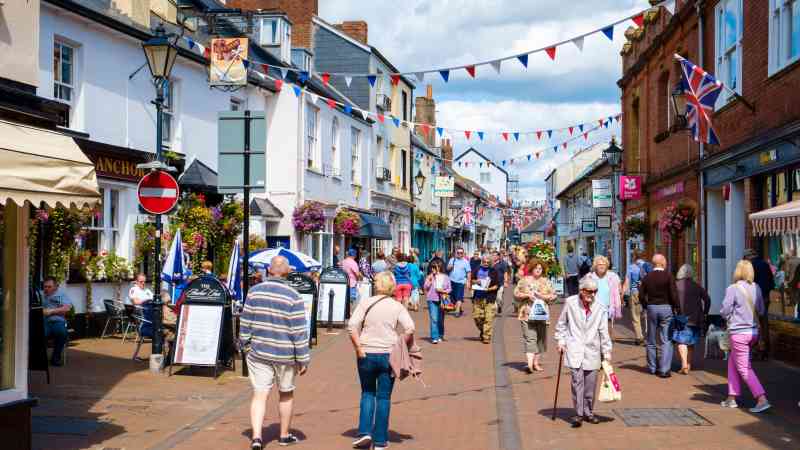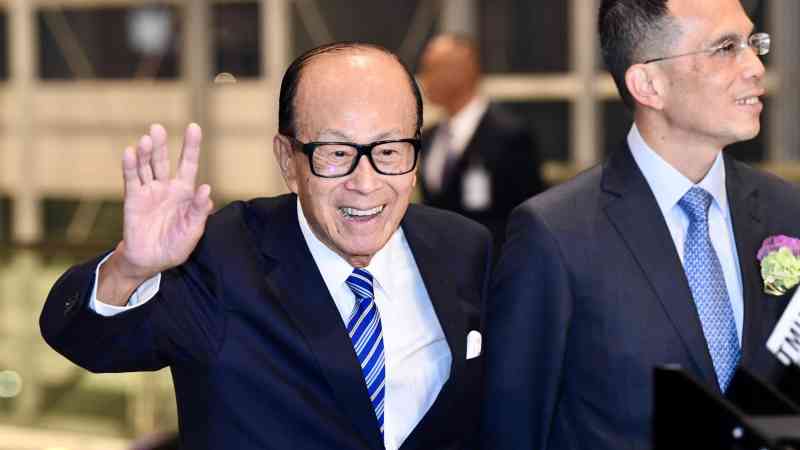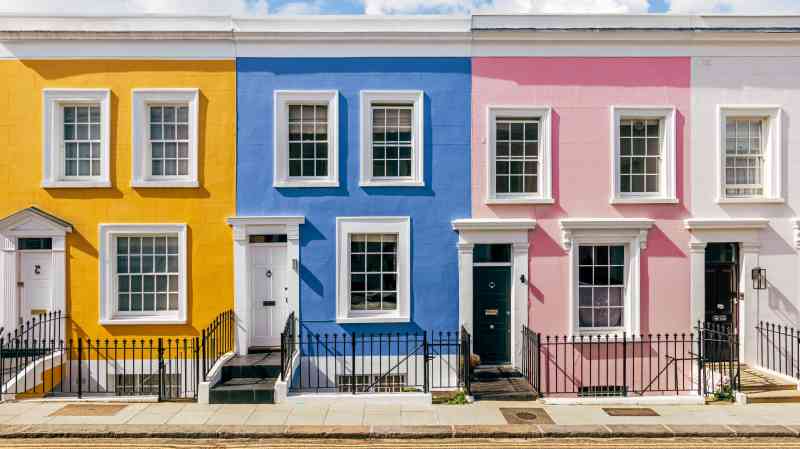Retail prices fall for the first time in almost three years
Prices in British shops have fallen for the first time in almost three years, driven by heavy markdowns as clothing retailers attempt to sell off summer stock.
Prices declined year-on-year by 0.3 per cent in August, down from an inflationary rate of 0.2 per cent in the previous month, according to numbers from the British Retail Consortium (BRC) and NielsenIQ.
It is the lowest rate since October 2021, when prices rose after a post-Covid spending spree, supply shortages and then Russia’s invasion of Ukraine.
Helen Dickinson, chief executive of the BRC, said the fall had been driven by non-food retailers “discounting heavily to shift their summer stock, particularly for fashion and household goods. This discounting followed a difficult summer of trading caused by poor weather and the continued cost of living crunch impacting many families.”
Prices in the non-food category fell year-on-year by 1.5 per cent after a 0.9 per cent decline the previous month. This was below the three-month average rate of 1.1 per cent and at its lowest rate since July 2021.
The annual rate of food price rises eased to 2 per cent this month, down from 2.3 per cent in July, with fresh food prices, particularly fruit, meat and fish recording the biggest monthly decline since December 2020 as supplier input costs lessened.
Fresh food inflation slowed to 1 per cent, down from 1.4 per cent the previous month. The rate of inflation in the ambient food category (food that can be safely stored at room temperature) decelerated to 3.4 per cent, from 3.6 per cent.
Dickinson said retailers would “continue to work hard to keep prices down and households will be happy to see that prices of some goods have fallen into deflation.”
However, she warned that the outlook for commodity prices “remains uncertain due to the impact of climate change on harvests domestically and globally, as well as rising geopolitical tensions. As a result, we could see renewed inflationary pressures over the next year.”
British retail sales rebounded last month, helped by increased discounting levels and higher spending in department stores and on sports equipment after wet weather deterred shoppers earlier in the summer.
The quantity of goods bought in Britain rose by 0.5 per cent between June and July, after a revised 0.9 per cent contraction the previous month, the Office for National Statistics said.
The rebound in retail sales was “led by increases in department stores and sports equipment shops”, said Liz McKeown, director of economic statistics at the ONS, with “both the Euros [football tournament] and discounting . . . boosting sales.”Department stores registered growth of 4 per cent in the month, while sales volumes at sports equipment, games and toys stores rose by 3.5 per cent. Sales at clothing and household goods shops dropped by 0.6 per cent. Fuel sales declined by 1.9 per cent, despite pump prices falling.The quantity of goods bought last month was still 0.8 per cent below its pre-pandemic level in February 2020, although households spent 19 per cent more, reflecting the impact of high inflation on spending power.






